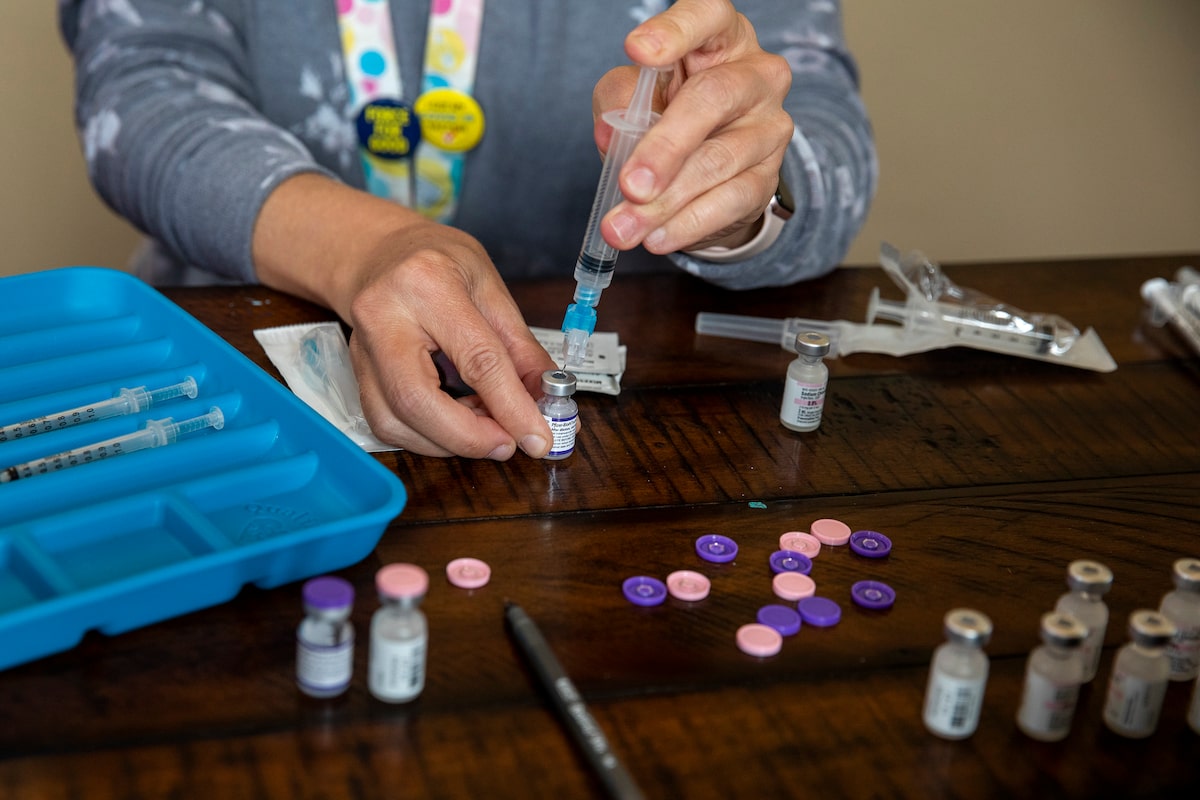Three liberal-leaning states on the U.S. West Coast have struck a new public-health compact, promising to issue their own vaccine recommendations and work together as a bulwark against federal cutbacks and ideological shifts under the Donald Trump administration.
The West Coast Health Alliance brings together California, Oregon and Washington at a time when the Centers for Disease Control and Prevention, under the leadership of Health Secretary Robert F. Kennedy Jr., has fired senior leadership, lost staff and replaced members of a key vaccine recommendation panel.
Federal disarray has reduced confidence in the CDC’s commitment to pursuing sound health science and raised “concern around the instability of the organization under this federal administration,” Washington state Secretary of Health Dennis Worsham said Wednesday.
The response by the three states, which will work together at first to issue their own COVID-19 vaccine recommendations, extends a new fault line in the basic governance of the United States.
Mr. Kennedy came into office saying he would Make America Healthy Again, promising to use American farm harvests as a counter to unhealthy junk food diets, “gold standard science” as a counter to ideology and a restoration of trust as an antidote to a bureaucratic dysfunction that, he wrote this week in a Wall Street Journal editorial, “produced irrational policy during Covid,” including “cloth masks on toddlers.”
Some states have welcomed the change.
Florida on Wednesday said it would work to eliminate all vaccine mandates. “Every last one of them is wrong and drips with disdain and slavery,” the state’s Surgeon-General Joseph Ladapo said Wednesday. He spoke earlier this week with Dr. Robert Malone, a vaccine skeptic Mr. Kennedy recently appointed to a CDC vaccine advisory committee.
“Go Joe!” Dr. Malone wrote on X.
RFK Jr.’s cuts to vaccine funding threaten pandemic preparedness, Canadian health experts warn
States with Democratic leadership, meanwhile, are seeking new ways to bolster traditional approaches to public health, founded on expert reviews and advice. In August, representatives from Massachusetts, Maine, Vermont, Connecticut, Rhode Island, New York, New Jersey and Pennsylvania met to discuss co-ordinating their own vaccine responses.
Those nascent efforts are a first step toward a broader effort by states to the health leadership they once expected from the federal government, said Dr. Karen Smith, a former California state public health officer who is now interim health officer in Sonoma County.
“Even the West Coast Health Alliance, while vaccines is their first target, they’re not going to stop there. They’re going to be looking at the holes in the fabric that used to be filled by the CDC and say, ‘Can we fill those?’” she said.
That could mean co-ordinating the relative strength of various states, she said, like matching laboratory capacity in California with Washington state’s expertise in communicable diseases.
Other priorities have already begun to emerge, she said, including infectious disease surveillance. “We need to understand how diseases are changing, what’s emerging, what’s not.” Individual state efforts to collect such data are insufficient, so “there needs to be an ongoing entity, or entities that can weave those together.”
Some of that will include expanding connections between states already established during the height of the pandemic, said Robert Valdez, a public-health scholar at the University of New Mexico who has worked at the U.S. Department of Health and Human Services and advised the White House on health care reform.
“Similar types of compacts will likely be required to substitute for the loss of federal public-health expertise and leadership across the nation.”
Opinion: RFK Jr. and the return of measles could be a disastrous combination
Yet supplanting federal leadership is unlikely to prove easy. Across the U.S., the CDC provides more than half of the funds used by state and local public-health departments. CDC staff are dispatched to bolster the ranks of overwhelmed communities in outbreaks. Vaccine recommendations from the CDC are backed by laws requiring insurers to cover those immunizations.
It’s not clear individual states can replace those functions, or funds.
Worse, discordant advice between states and Washington, D.C., threatens to further erode public trust in areas such as vaccines.
“There’s going to be a lot of confusion. People are going to say, ‘Who do I believe if the CDC says do A and the West Coast Health Alliance says do B,’” said Timothy Brewer, an epidemiologist at the UCLA Fielding School of Public Health.
Deep political divisions have already cleaved the U.S. into different realms of public health. During the height of the pandemic, for example, counties that voted for Mr. Trump tended to see higher mortality rates than those that voted Democrat, said Prof. Brewer.
So “that fracturing has already happened. And it’s only going to get worse.”
It’s also not clear how much Mr. Kennedy will change at the CDC. The basic list of recommended childhood vaccinations, as one example, so far remains unchanged.
On the Pacific coast, state health authorities say they have already seen worrying signs. In certain areas, offices at the CDC “either don’t exist or aren’t returning phone calls to us,” said Mr. Worsham, the Washington state Health Secretary.
The state co-operation marks a commitment to preparing for the possibility “that we cannot rely on the CDC,” he said.
“We’re not going to wait to see how it plays out.”

